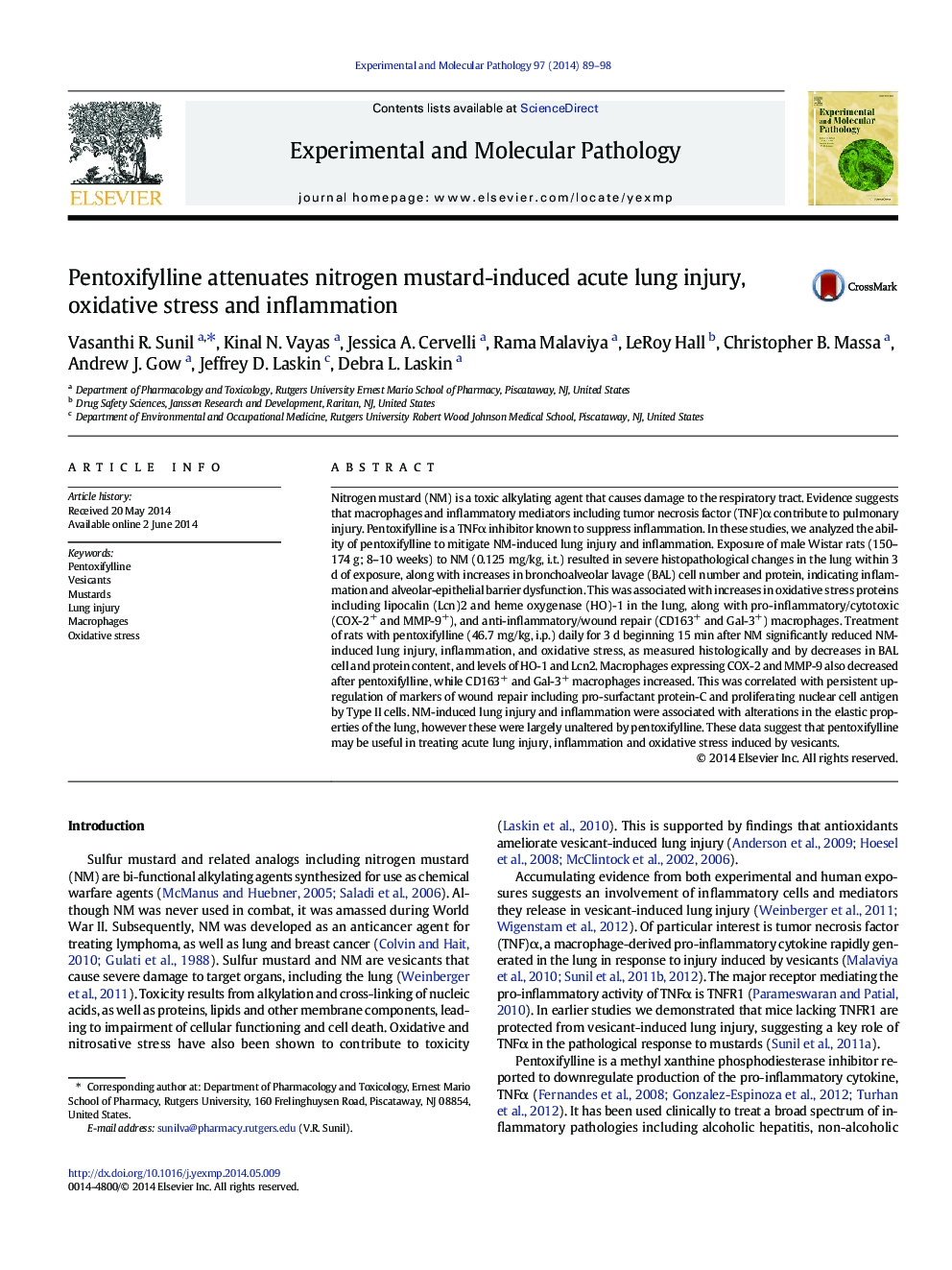| Article ID | Journal | Published Year | Pages | File Type |
|---|---|---|---|---|
| 5888337 | Experimental and Molecular Pathology | 2014 | 10 Pages |
â¢NM causes lung injury, inflammation, and oxidative stress and impairs lung function.â¢Pentoxifylline mitigates NM-induced lung injury, inflammation and oxidative stress.â¢Reduced lung toxicity is associated with increases in anti-inflammatory macrophages.
Nitrogen mustard (NM) is a toxic alkylating agent that causes damage to the respiratory tract. Evidence suggests that macrophages and inflammatory mediators including tumor necrosis factor (TNF)α contribute to pulmonary injury. Pentoxifylline is a TNFα inhibitor known to suppress inflammation. In these studies, we analyzed the ability of pentoxifylline to mitigate NM-induced lung injury and inflammation. Exposure of male Wistar rats (150-174 g; 8-10 weeks) to NM (0.125 mg/kg, i.t.) resulted in severe histopathological changes in the lung within 3 d of exposure, along with increases in bronchoalveolar lavage (BAL) cell number and protein, indicating inflammation and alveolar-epithelial barrier dysfunction. This was associated with increases in oxidative stress proteins including lipocalin (Lcn)2 and heme oxygenase (HO)-1 in the lung, along with pro-inflammatory/cytotoxic (COX-2+ and MMP-9+), and anti-inflammatory/wound repair (CD163+ and Gal-3+) macrophages. Treatment of rats with pentoxifylline (46.7 mg/kg, i.p.) daily for 3 d beginning 15 min after NM significantly reduced NM-induced lung injury, inflammation, and oxidative stress, as measured histologically and by decreases in BAL cell and protein content, and levels of HO-1 and Lcn2. Macrophages expressing COX-2 and MMP-9 also decreased after pentoxifylline, while CD163+ and Gal-3+ macrophages increased. This was correlated with persistent upregulation of markers of wound repair including pro-surfactant protein-C and proliferating nuclear cell antigen by Type II cells. NM-induced lung injury and inflammation were associated with alterations in the elastic properties of the lung, however these were largely unaltered by pentoxifylline. These data suggest that pentoxifylline may be useful in treating acute lung injury, inflammation and oxidative stress induced by vesicants.
